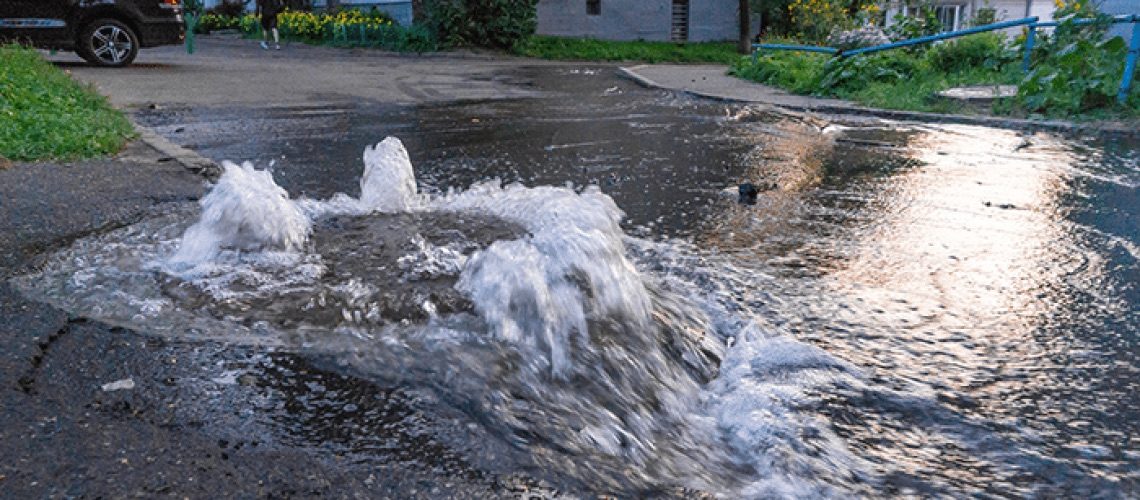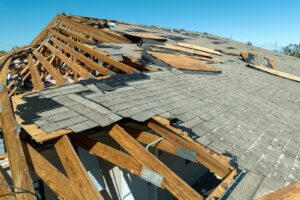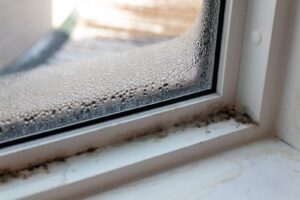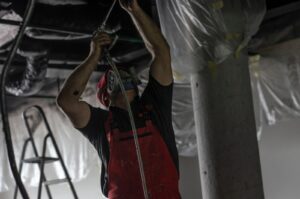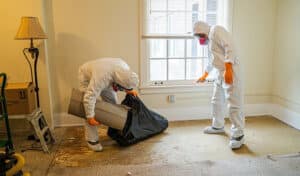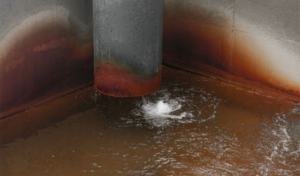Thankfully, in the 21st century, we have plumbing systems that protect us from sewer backup. But sometimes, things still go wrong, which is why it’s essential to take preventative measures against sewer backup in our homes.
You’ll likely notice sewer backup if it’s present in your home. The hydrogen sulfide in sewer gas will make your home smell like rotten eggs. You might check your refrigerator first but then realize it’s from the sewer when you can’t find any rotten eggs.
The good news is, sewer isn’t bad for you if the levels are low, as long as you stay away from it and get the backup fixed right away. But if you’re chronically exposed to sewer backup or high levels of it in your sewer lines, this could present a significant problem.
In this blog, we’re taking a look at what causes sewer backup in your home, how to deal with it, and the signs that you need medical treatment for sewer exposure.
What Causes Sewer Backup?
Issues with your plumbing are most likely the cause of sewer backup. Thankfully, our modern age protects us from many of the issues we dealt with in previous centuries. Today, you probably have a leak, cracked pipe, clogged drain, loose toilets, blocked air vents, or dry plumbing if you’re dealing with sewer backup. Let’s take a look at each one.
Leaks
Even the best plumbing out there can suffer from a leak. If you have a leak, it’s likely that a pipe or vent wasn’t placed where it should have been. If a plumbing vent is too close to a window or air intake, this can cause sewer gas leaks.
Cracked Pipes
Are your pipes close to 100 years old? If so, you might want to have your plumbing redone. As pipes age, they degrade, crack, and break, potentially exposing you to sewer problems.
Blocked Air Vents
It’s important to ventilate your home correctly. Your air vents are what keep toxic gases out. If your air vents are blocked, you might be in danger and not even know it. Anything–including dirt or debris–can clog your air vents and cause a sewer backup.
Clogged Drains
Your drains flush toxic waste out through your septic system. If your drains are clogged, your sewage will get backed up. The clog will decompose, causing sewer gas to leak into your house.
Dry Plumbing
Dry plumbing means that your plumbing system hasn’t been used in a long time, causing the natural water barrier to erode. If your plumbing gets dry, sewer gas can leak through since there’s no protective barrier.
A Loose Toilet
A loose toilet means that your sewer lines aren’t tight enough. A tight fit between your toilet and the sewer lines will help prevent sewer gas from leaking into your home.
How Dangerous Is Sewer?
So, you understand how sewage can leak into your home. But how dangerous is it?
It’s pretty dangerous since some of the chemicals in sewage are toxic. Sewer gas is made up of:
- Hydrogen sulfide
- Methane
- Ammonia
- Carbon dioxide
Small amounts won’t hurt you, but as we said before, being exposed to high levels isn’t good for you. Chronic exposure to small amounts is also harmful.
Hydrogen sulfide can cause organ damage or death, so it’s very serious.
Ammonia isn’t nearly as bad for you, which is good since it’s found in many cleaning products! It has a strong smell, though, which causes irritation. It’s also flammable.
Methane and carbon dioxide are relatively harmless. They’re nontoxic greenhouse gases. But you still need to be wary of both because methane can quickly start a fire.
Exposure Symptoms
If you’re smelling rotten eggs in your home, you should make sure you don’t have a sewer backup. You should also be aware of experiencing the following symptoms:
- Fatigue
- Headaches
- Nausea or vomiting
- Dizziness or lightheadedness
- Poor memory and concentration
Those are the kinds of symptoms you’ll experience at home. If you work in an industrial setting, you could experience these symptoms:
- Loss of smell
- Irritation in your mouth, throat, and lungs
- Irritated eyes or pink eye
- Seizures
- Coma
- Death
As you can see, high levels of sewage backup in an industrial setting can be fatal. If you think you smell rotten eggs, but then the smell goes away, you might be experiencing sewage poisoning. You should immediately seek medical attention.
Getting Medical Treatment
There’s no test to detect poisoning from sewer backup. Instead, you’ll be diagnosed based on the following:
- If you’ve smelled sewer backup
- If you have the symptoms listed above
- If your home or work has had a sewer backup or sewer leak
If you meet those criteria, you’ll be treated for sewage poisoning.
Mild exposure is usually treated by going outside and getting fresh air. You’ll want to immediately get the sewer backup fixed to alleviate your symptoms and prevent anything further from happening. You might want to stay at a friend’s house or in a hotel until the backup has been fixed.
If you’re experiencing difficulty breathing, dizziness, or nausea, you’ve likely been exposed to high levels of sewer backup. You should go to your local emergency room for medical treatment.
Restoremasters
Do you suspect a sewer backup in your home or at your workplace? Pay attention to how you feel, and seek medical treatment if your symptoms are more than mild.
The sewer backup needs to be fixed before returning to your home or workplace. That’s why you should contact Restoremasters. With over 100 years of combined experience, Restoremasters has repaired leaks, cracked pipes, clogged drains, and more for over 20 years since the company was founded.
We’re located in Sandy, Utah, serving the greater Salt Lake City and Provo areas. If you suspect a sewer backup, have questions or need help, please don’t hesitate to reach out to us. Restoremasters is here to restore your home to a safe, healthy place to live.

